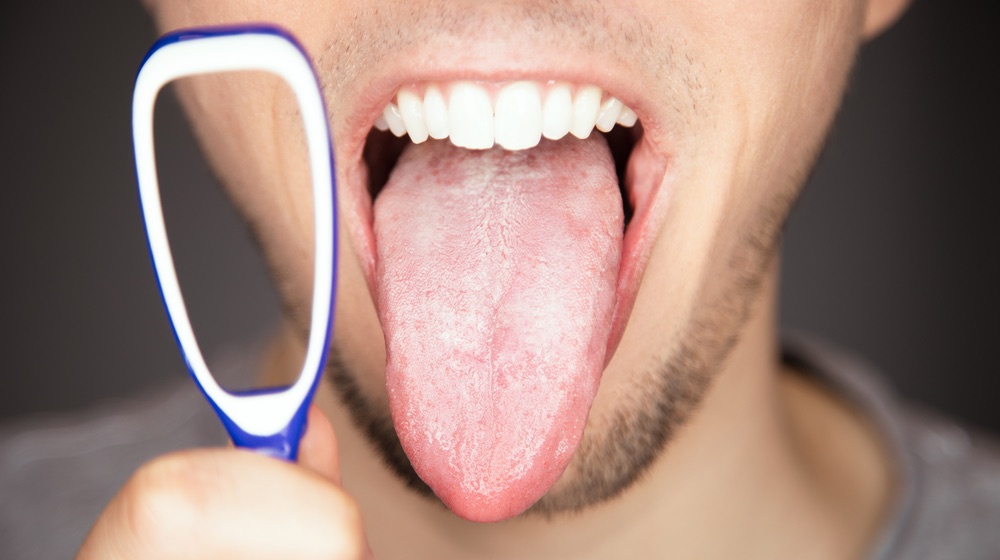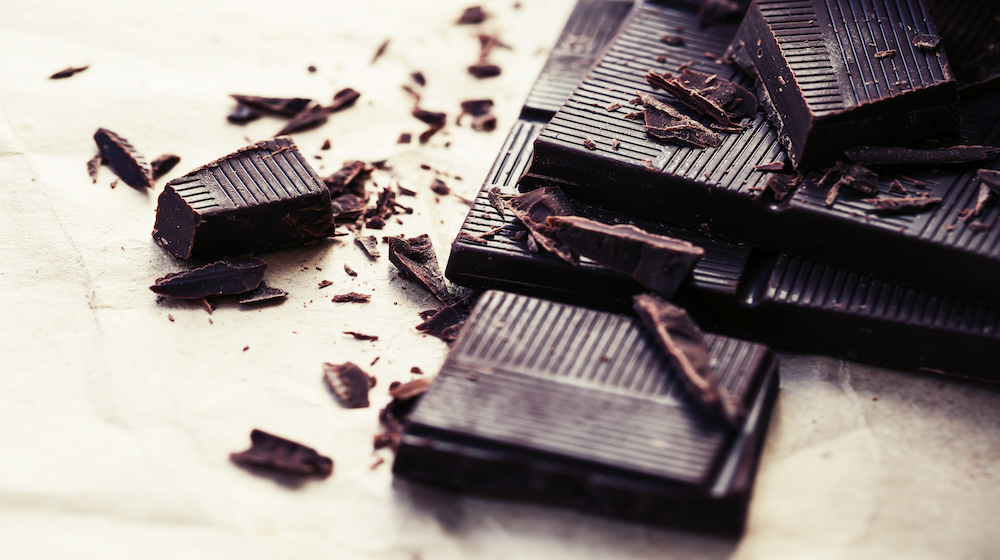If you're careful about what you eat, you've probably been pleased to hear that there are some health benefits of dark chocolate. But is it true?
And if it is true, how can something as delectable as chocolate be good for you? And, in what ways can it be good for you? Let's take a look at these questions in turn.
RELATED: 16 Best Snacks for Weight Loss
The Benefits of Eating Dark Chocolate
Click here to jump to the infographic.
What's In A Dark Chocolate?
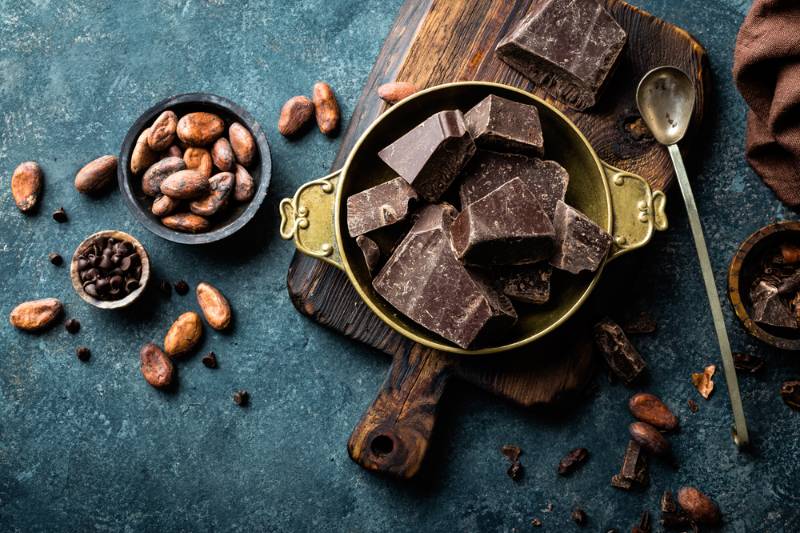
Dark chocolate can indeed be good for you because it's a powerful source of nutrients.
For example, 100 grams of chocolate with 70-85% cocoa solids contains:
- Almost 8 grams of protein
- 11 grams of fiber
- Over 12 milligrams of iron
- 230 mg of magnesium
- 3.34 mg of zinc
- Significant amounts of manganese, potassium, phosphorus, and selenium.
Most noteworthy, though, is that dark chocolate contains a significant supply of antioxidants.
These antioxidants – called flavonoids – are found in the cacao beans that chocolate comes from. They are responsible for delivering the greatest health benefits that dark chocolate is known for.
You see, typical chocolate on the market contains a lot of sugar, milk, and only a small amount of cocoa (roasted cacao). Dark chocolate, on the other hand, contains much more cacao – and less sugar – than the milk chocolate most of us are familiar with.
So it's the higher quantity of antioxidants found in dark chocolate, from the cacao, that really bring health benefits.
And this is because antioxidants serve to neutralize free radicals and reduce the oxidative stress that can lead to a variety of poor health conditions.
What then are the specific ways dark chocolate can improve your health?
Potential Health Benefits of Dark Chocolate
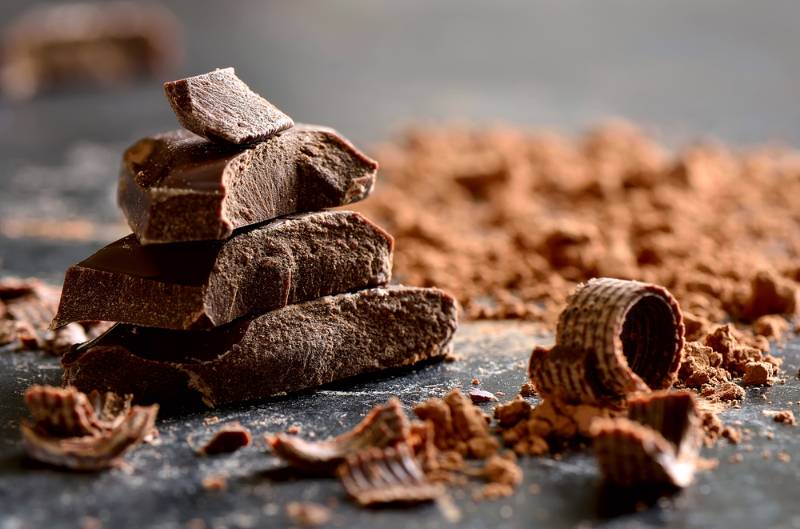
1. Reduced Risk of Heart Disease
It's well-known that both high blood pressure and high cholesterol increase the risk of heart disease. What's less known is that dark chocolate can help keep these levels in check.
In one study, those who ate 25 grams of dark chocolate daily for eight weeks had significantly lower blood pressure than those who did not.
The theory behind this is that the flavanols in chocolate stimulate a process that dilates blood vessels, leading to lower blood pressure.
Dark chocolate can also reduce the amount of oxidized LDL – or bad cholesterol – in the bloodstream… and it can even improve the ratio of HDL – good cholesterol – to LDL cholesterol.
2. Lower Levels of Inflammation
When the body is in an inflammatory state – which unfortunately is quite common — it becomes predisposed to health problems and chronic diseases. But dark chocolate may reduce inflammation and the damage it can cause in your body.
Studies have shown that eating dark chocolate can help regulate the immune response and reduce inflammatory biomarkers.
This is especially good news for those at risk for diabetes, arthritis, and certain types of cancer.
3. Reduced Insulin Resistance
When the body's cells stop responding to the hormone insulin it's known as ‘insulin resistance.'
If insulin resistance persists, it can lead to high levels of blood glucose and eventually diabetes.
One study has shown the just a small amount of dark chocolate each day may help reduce glucose levels in the blood and lower the amount of insulin resistance.
Which is more good news for those concerned about diabetes.
RELATED: Foods Everyone With Diabetes Should Keep In Their Kitchen
4. Improved Brain Function
Now, who wouldn't like to improve their brain function? This alone might make eating dark chocolate a habit worth pursuing!
In one study it's been shown that eating high flavanol cacao for five days can help the blood flow to the brain.
Beyond this, cacao found in dark chocolate may help prevent neurodegenerative problems like Alzheimer's disease and Parkinson's disease.
And, one recent study even suggests that the compounds in dark chocolate may help the brain to reorganize itself when it's affected by an injury or disease.
5. Increased Satiety
One of the common problems with eating is knowing when to stop. Well, dark chocolate can help with that, because it promotes a feeling of satiety. In other words, it helps you feel full and satisfied.
And as a result, you feel less of a need to eat something sweet after you've had some dark chocolate.
In addition, dark chocolate can also be emotionally satisfying because of the way it prompts the release of certain “feel-good” hormones.
This is why chocolate is such a natural gift to be shared among
loved ones. And why eating it can put you in a good mood!
Keeping Perspective and Maintaining Moderation
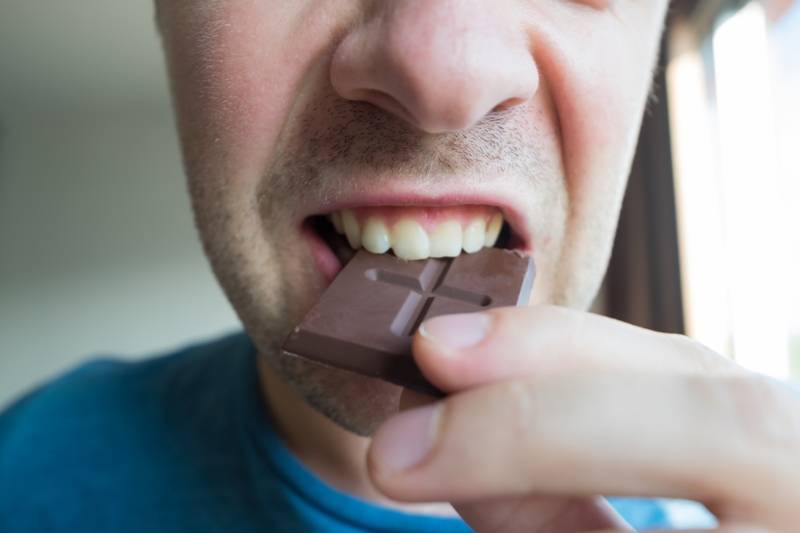
Upon reading these health benefits, you may be tempted to start eating chocolate without restraint. But be careful… there are a few things to consider.
For one, remember that we are talking about dark chocolate. And dark chocolate is considered to be made up of at least 70 percent cacao. So don't just binge on any chocolate you can get your hands on.
And keep in mind as well…
Most of the dark chocolate you'll find in stores will have some sugar in it… so you only want to eat it in moderation.
Also, chocolate has caffeine in it too. That may play a part in increased brain function. But it also may be a reason not to have dark chocolate too close to bedtime as it might keep you overly stimulated while you're trying to sleep.
Here’s an infographic guide. Don’t forget to download, save, or share this handy infographic for reference:
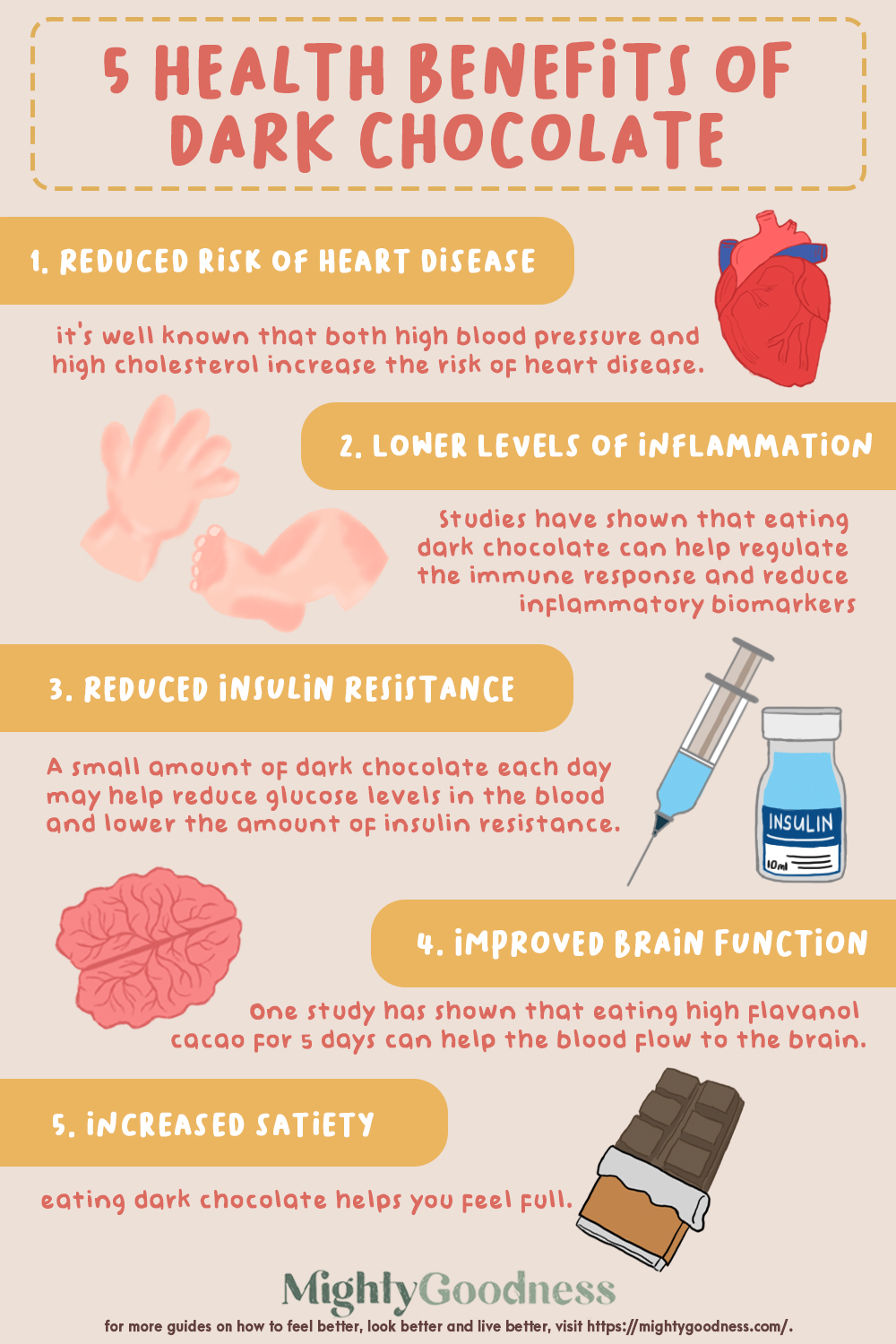
Watch this video from Zenith Labs for a doctor's perspective on the benefits of eating dark chocolates:
With those caveats given, however, I do think regularly eating small amounts of dark chocolate makes sense.
Perhaps a square or two for dessert after dinner. That's what I like to do, and I know of others who do the same. Not a bad habit to take up!
What do you like most about the benefits of dark chocolate? Share your thoughts in the comment section below.
Up Next:
- 12 Superfoods To Boost A Healthy Diet
- Why Too Much Starch Is Dangerous
- How to Improve Your Mental Health
Calling all Health Buffs! If you’ve got the gift of keeping healthy and sharing this knowledge through writing, click here if you want to write for us.
Please stay connected with us on Facebook, Twitter, Instagram, and Pinterest, and make sure to join our community of healthy living and minded people here.
Trending
Best Multivitamin for Men | Top 10 Best Multivitamins for Men 2022
Tongue Color | 7 Scary Tongue Color Meanings
Get Updates
SIGN UP FOR OUR NEWSLETTER TODAY

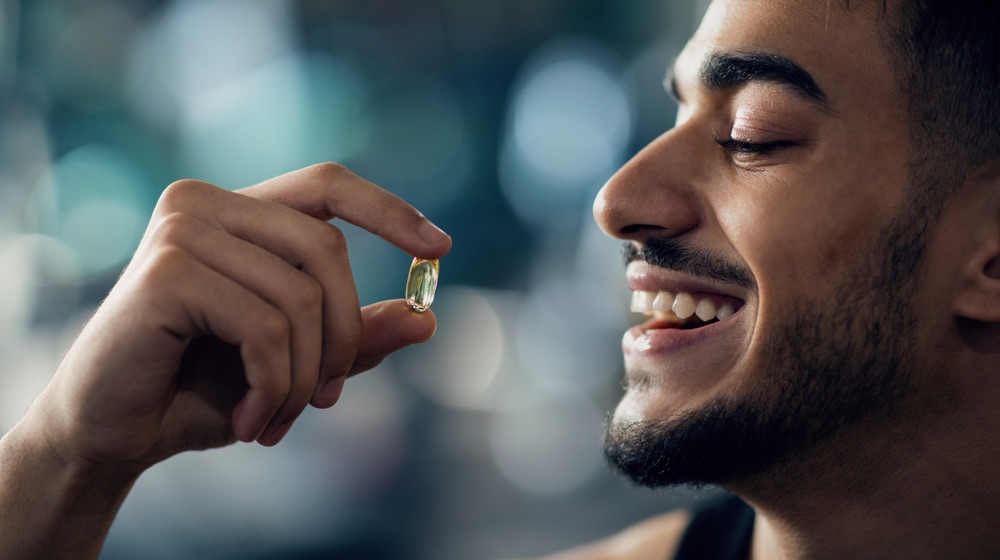
Best Multivitamin for Men | Top 10 Best Multivitamins for Men 2022
